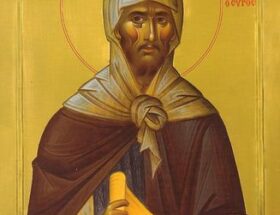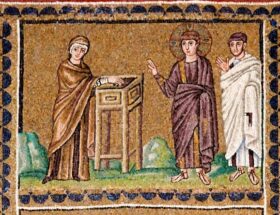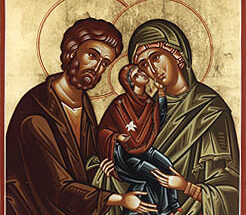In Orthodox Christianity, patience and perseverance are deeply intertwined with the spiritual journey of a believer. The Orthodox tradition emphasizes the lifelong process of theosis—becoming united with God—which requires endurance, faith, and a willingness to remain steadfast in the face of trials. Unlike a faith that promises instant results, Orthodoxy teaches that growth in Christ is slow, often difficult, and shaped by struggle.
Patience is a fundamental virtue in Orthodoxy because it reflects the humility and trust necessary to walk the narrow path. The Desert Fathers, revered for their ascetic wisdom, often spoke about the need to endure suffering and hardships with a quiet heart. They saw trials not as obstacles, but as opportunities to grow in faith and reliance on God’s grace. Saint Isaac the Syrian, for instance, taught that suffering purifies the soul and brings a person closer to God. By patiently enduring difficulties, whether they be personal struggles, persecution, or spiritual dryness, Orthodox Christians imitate Christ, who bore the Cross with unwavering resolve.
Perseverance is closely linked to patience, as it involves the continued effort to live according to Christ’s commandments despite challenges. Orthodox spirituality does not promise an easy road but calls believers to press on through prayer, fasting, and repentance. Icons of saints serve as powerful reminders that holiness is not attained overnight but through years—sometimes lifetimes—of persistent striving. The Jesus Prayer, a central part of Orthodox spirituality, is itself an exercise in perseverance, teaching the faithful to constantly turn their hearts toward God.
Moreover, the Orthodox Church sees patience and perseverance as necessary for salvation. The Apostle Paul’s exhortation to “run with perseverance the race marked out for us” (Hebrews 12:1) reflects the Orthodox understanding that salvation is a journey rather than a one-time event. The Church’s liturgical life, with its long services, repetitive prayers, and fasting seasons, cultivates endurance, training believers to persist even when faith feels difficult.
Ultimately, patience and perseverance in Orthodoxy are about trusting in God’s timing and remaining faithful regardless of circumstances. By enduring suffering with humility and steadfastness, Orthodox Christians grow in holiness, reflecting the life of Christ, who patiently endured the Cross and triumphed through His Resurrection. This understanding encourages believers to view hardships not as burdens to escape, but as sacred opportunities to deepen their relationship with God.
Sources:
-
Holy Scripture (Bible)
- Exodus 20:12 – “Honor your father and your mother, that your days may be long in the land that the Lord your God is giving you.”
- Matthew 25:40 – “Truly I tell you, whatever you did for one of the least of these brothers and sisters of mine, you did for me.”
- 1 Timothy 5:8 – “But if anyone does not provide for his relatives, and especially for members of his household, he has denied the faith and is worse than an unbeliever.”
-
The Sayings of the Desert Fathers
- The Desert Fathers, early Orthodox monastic figures, emphasized humility, service, and caring for the weak as a form of spiritual growth.
-
Teachings of Orthodox Saints
- Saint John Chrysostom spoke about the importance of charity and service, especially towards the weak and elderly.
-
The Orthodox Church’s Liturgical Tradition
- Many prayers and hymns in Orthodox services honor the elderly and recognize their role in passing down the faith.
-
The Writings of Elder Ephraim of Arizona
- His teachings focus on love, humility, and caring for others as central to Orthodox Christian life.
-
The Orthodox Tradition of Family and Community
- The Orthodox Church strongly emphasizes family unity and intergenerational support as part of the Christian life.










